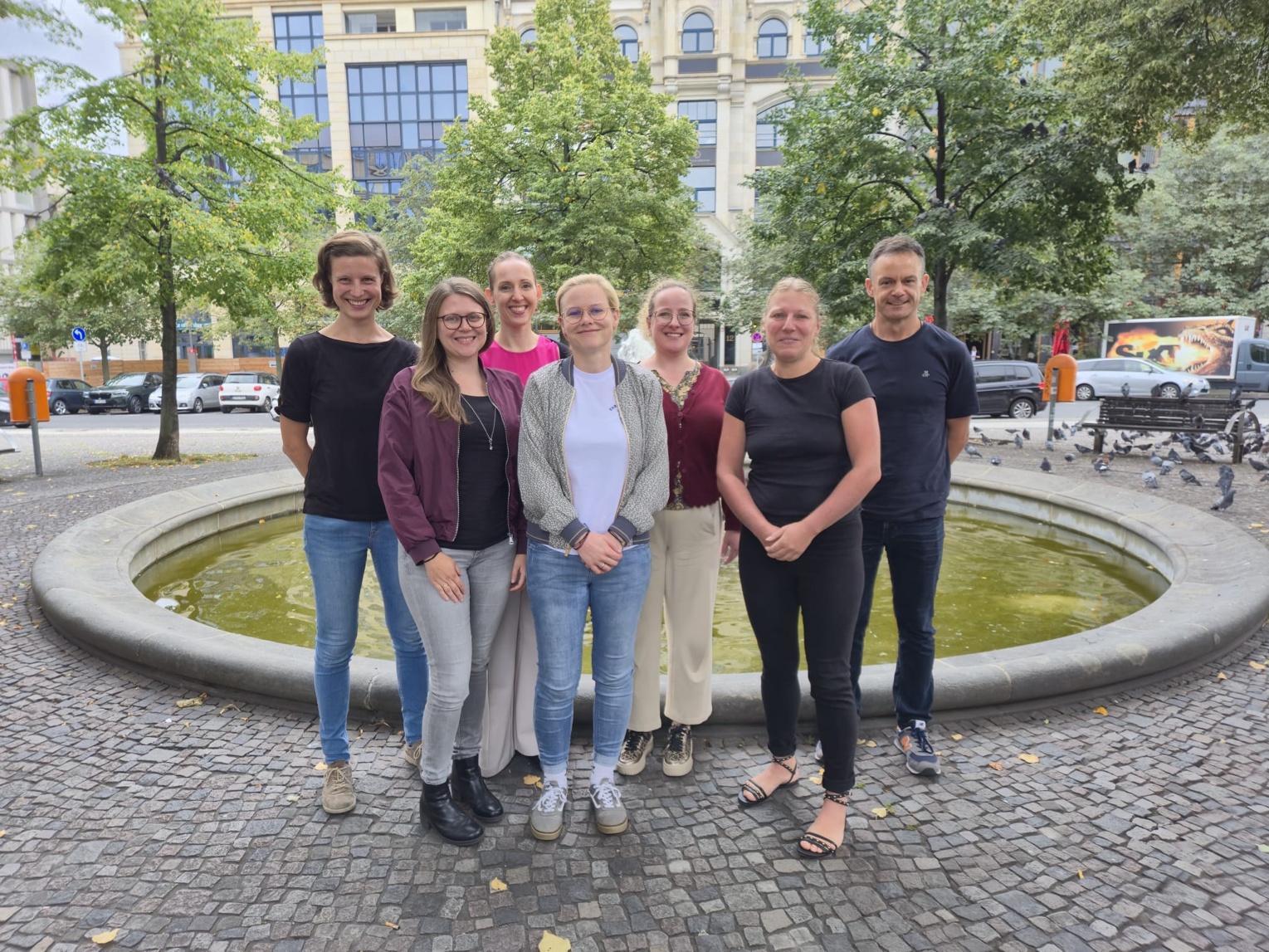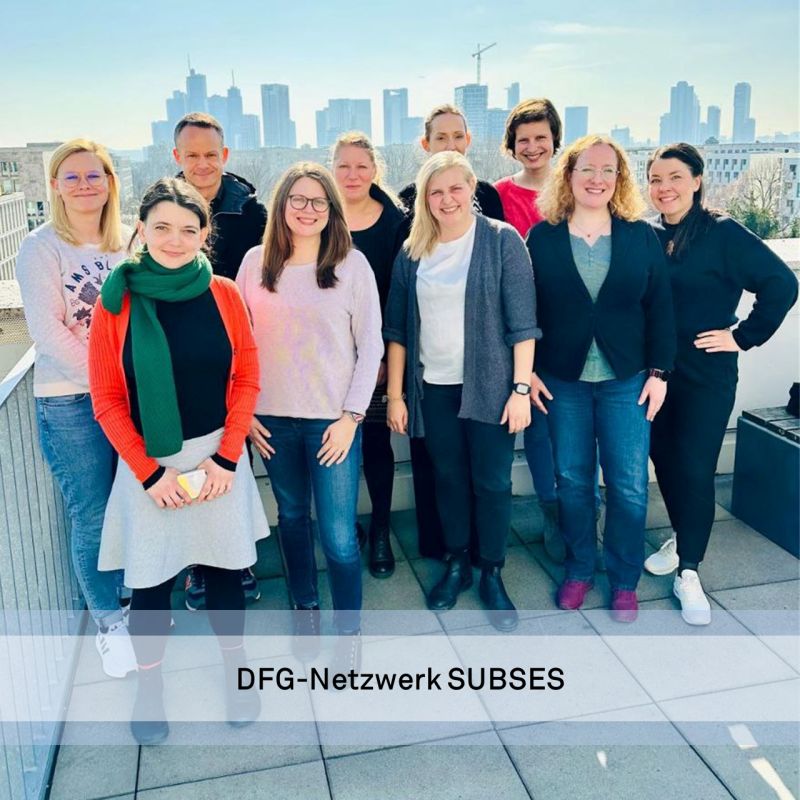SUBSES
Influences of the social environment on educational processes of students from different ethnic and socio-economic backgrounds
Children and young people in Germany have different educational opportunities depending on their socio-economic status and ethnic origin. SUBSES is a scientific network that aims to make a contribution to educational equality and equal opportunities.
Project data
| Research lines | Research Line Domain-Specific Learning in Preschools and Schools, Research Line Professional Competence and Learning of Teachers | ||
| Departments | Knowledge Transfer | ||
| Funding | Deutsche Forschungsgemeinschaft | ||
| Period | 12/1/2023–11/30/2026 | ||
| Status | current | ||
| IPN researchers | Dr. Christin Laschke (Project lead) | ||
Starting Point
Children and young people in Germany are characterized by increasing diversity, including their socio-economic status, ethnic origin, and the associated cultural-linguistic diversity. An immigration background in Germany is often accompanied by a low socio-economic status. Both individual diversity characteristics are strongly linked to educational processes. Educational processes (e.g. educational aspirations of pupils: which are parents and educational participation) and educational successes (e.g. acquisition of skills and competencies) can vary a lot for people with different socio-economic statuses and people from different ethnic groups, which limits education-related equal opportunities. Numerous research work describes the connection between educational processes, individual characteristics of the students, and their imprint by the social environment, in particular through significant inner- and extracurricular others, such as teachers, peers, and siblings. The network of 14 young scientists, who have partly participated in the DFG Junior Academy of Young Researchers, concludes this starting point.
Objectives and Procedures of the Scientific Network
To comprehensively investigate the complex interaction between the learners and their social environment from different perspectives and thus contribute to elucidating existing educational disparities, the network members integrate theoretical models and methods of various disciplines, such as psychology, sociology, linguistics, and educational sciences. One goal of the interdisciplinary approach is to develop a common theoretical understanding of our research content, to define central concepts, and to create an integrative model that represents our research questions in the overall context. In addition, joint project proposals are developed in the network based on this model, and the necessary preparatory work and publications are pursued for this purpose. Over a period of three years, exchange between the network members is being strengthened in six working meetings, project groups are being formed, and new perspectives on questions are being generated by integrating theoretical models. During the course, project applications are prepared, preliminary studies are planned and carried out, and the first manuscripts are written. Guests are invited to individual working meetings who support the network concerning their methodological knowledge and experience in submitting applications and policy advice. An important long-term objective of the network is to contribute to promoting equal education and opportunities for all students.
Network Participants
Acitivities
Fourth Network Meeting (September 2025)
On 18–19 September 2025, the DFG Network SUBSES came together for its fourth meeting in Berlin. Discussions focused on strategies for long-term collaboration beyond the project’s funding period and on exploring future funding opportunities. Guests included Prof. Dr. Julian Hamann and Prof. Dr. Aileen Edele (both Humboldt-Universität zu Berlin).
In addition, contributions for the planned special issue of the Zeitschrift für Erziehungswissenschaft were further developed, and ways to strengthen international visibility were explored. Initial ideas for involving international experts in future meetings were also discussed.
We look forward to the next steps – in particular to the spring meeting in March 2026 in Erfurt.

Third Network Meeting (March 2025)
The third working meeting of the DFG-funded scientific network “Social Environmental Influences on Educational Processes of Students from Diverse Ethnic and Socioeconomic Backgrounds” (SUBSES) took place on March 6 and 7, 2025, at DIPF in Frankfurt am Main.
The meeting focused on interdisciplinary exchange regarding challenges and possible solutions for the use and operationalization of key concepts in the context of critical migration research—an essential step toward the development of a shared theoretical understanding. Special thanks go to Anne-Kathrin Will (Carl von Ossietzky University of Oldenburg) and Philipp Jugert (University of Duisburg-Essen), whose contributions opened up new perspectives and stimulated productive discussions.
In addition to the substantive discussions, the following important progress was made:
- Further development of content-related work within the subgroups
- Refinement of the concept for the planned special issue, which has been accepted for submission by the Zeitschrift für Erziehungswissenschaft
The fourth working meeting is scheduled to take place in September 2025 in Berlin.
Second Network Meeting (September 2024)
The second meeting took place at the IPN in Berlin in September 2024. The focus was on developing concrete joint research projects. During the meeting:
- Designs for interdisciplinary studies were presented and discussed
- Initial joint publication plans were specified
Kick-off Meeting (March 2024)
The first network meeting was held on March 21 and 22, 2024, at the IPN in Berlin. It served as an opportunity for members to get to know one another and explore shared research interests. During the meeting:
- Initial research questions and project ideas were developed
- The groundwork was laid for preliminary studies and publications

People from left to right: Hannah Kleen, Melanie Olczyk, Thomas Zimmermann, Justine Stang-Rabrig, Christin Laschke, Meike Bonefeld, Helene Zeeb, Marion Fischer-Neumann, Katharina Wehking











